Why these 27 Western brands are abandoning China
Famous firms pulling out of the People's Republic
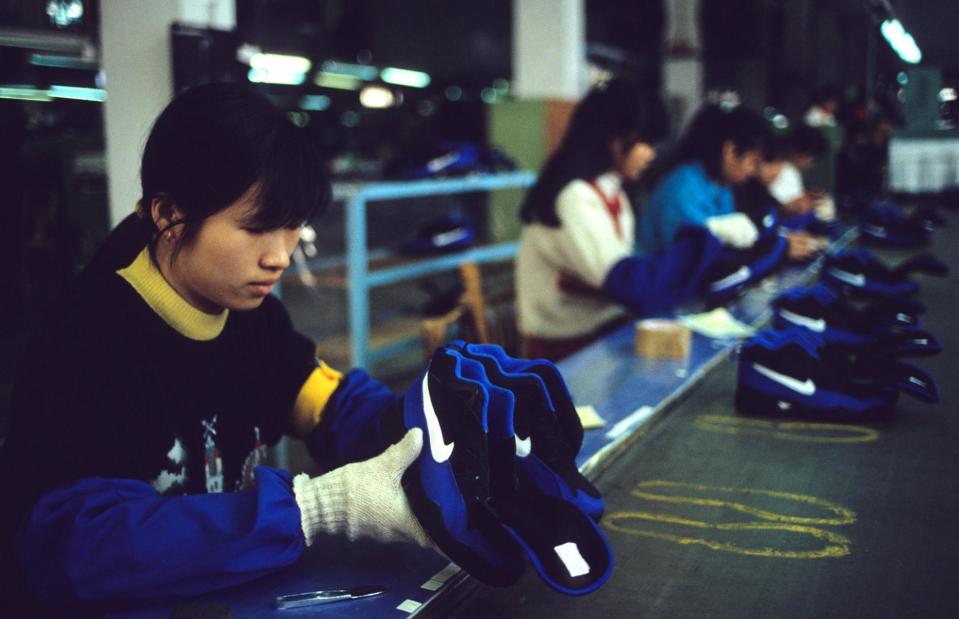
ANDREW HOLBROOKE/Corbis via Getty Images
As the US-China trade war and the dispute over Taiwan rumbles on, relations between liberal democracies and Beijing continue to deteriorate. Add in other issues, such as arguments over intellectual property (IP) theft, concerns over human rights violations in Xinjiang, and the erosion of Hong Kong's autonomy, and it's perhaps no surprise that many globally renowned companies are pulling out of China.
Read on to discover which world-famous firms are partially or completely deserting the People's Republic.
All dollar amounts in US dollars.
Blizzard Entertainment
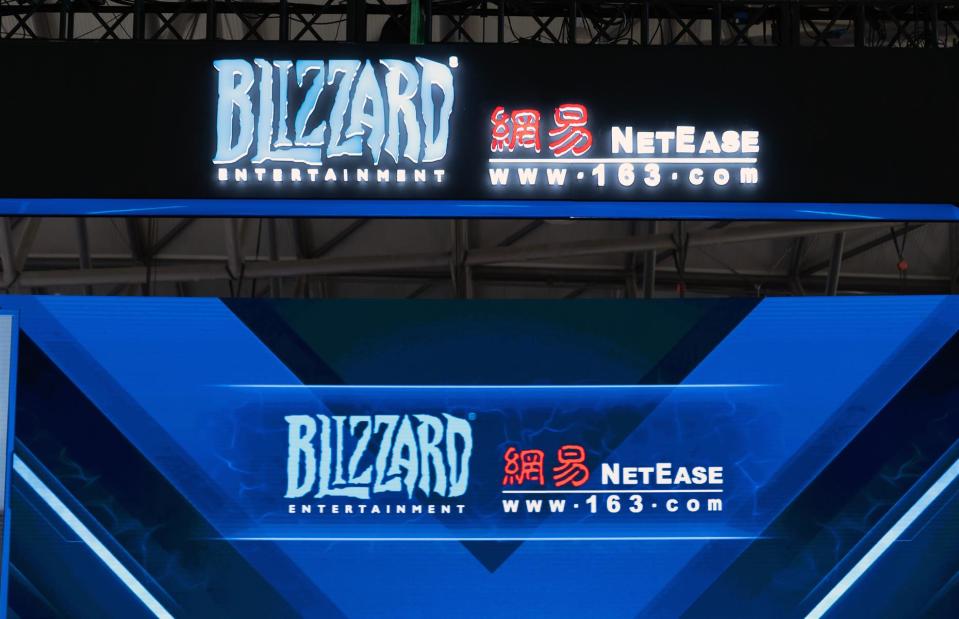
Joseph GTK/Shutterstock
California-based Blizzard Entertainment, the business behind hit video games such as World of Warcraft, officially left China in January last year after ending its agreement with Chinese technology company NetEase. In November 2022, Blizzard announced it had been unable to reach a deal that was “consistent with Blizzard’s operating principles and commitments to players and employees", while NetEase said the firms couldn't agree on key terms.
NetEase is the second-largest gaming company in China, but shares plummeted by around 11% in the wake of the announcement. Attempts by Blizzard to extend the contract by six months reportedly fell flat, and when the deal finally expired on 23 January 2023, popular games that had been available in the country since 2008 were removed from servers. Simon Zhu, president of global investments and partnerships at NetEase, described the server shutdown as "such a sad moment to witness".
Stanley Black & Decker
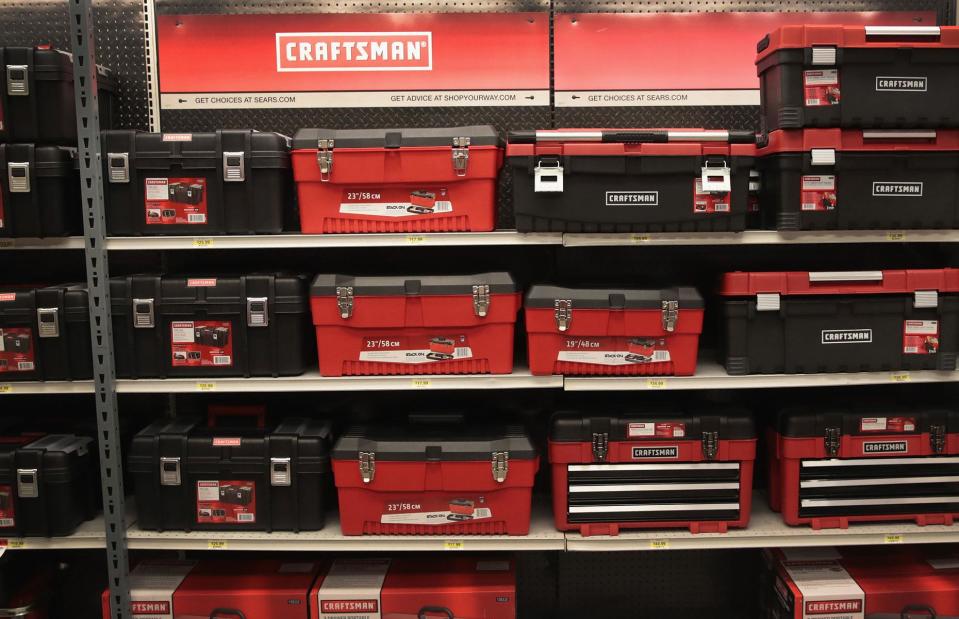
Scott Olson/Getty
With the US-China trade war showing no sign of abating, Stanley Black & Decker is also on the move. The industrial tools and household hardware maker permanently closed its factory in Shenzhen in November 2021 after 25 years of operation.
Growing competition and rising labour and land costs were cited as reasons for the closure. Stanley Black & Decker opened a brand new 425,000-square-foot, $90 million (£68.5m) factory in Fort Worth, Texas in 2021.
Dell
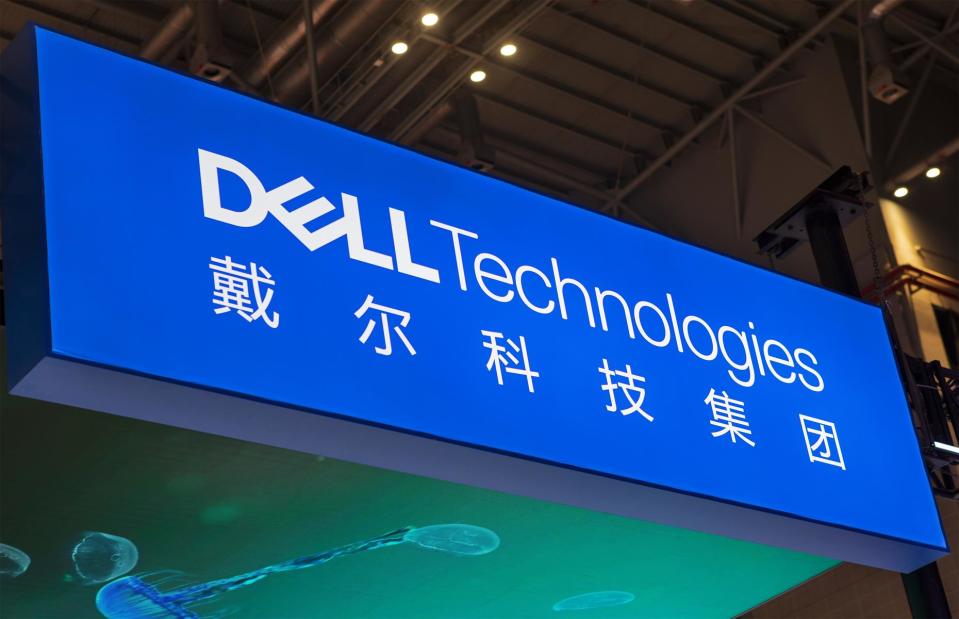
testing/Shutterstock
As relations between the US and China worsened, and the trade conflict intensified, Dell Technologies quietly moved production and supply chains away from the People's Republic. The Nikkei Asian Review reported in 2019 that the Texas-headquartered tech company planned to shift up to 30% of its notebook production out of China.
Dell doubled down on its anti-China stance in January last year, when it announced it would be phasing out its use of China-made chips, as well as telling its suppliers to reduce the number of Chinese components they provide.
"We continuously explore supply-chain diversification across the globe that makes sense for our customers and our business," Dell said in a statement. Its shift away from China came shortly after the Biden administration imposed controls that limited the export of US semiconductor chips to the People's Republic, while also blacklisting Chinese chipmaker YMTC and 21 "major" AI companies.
HP
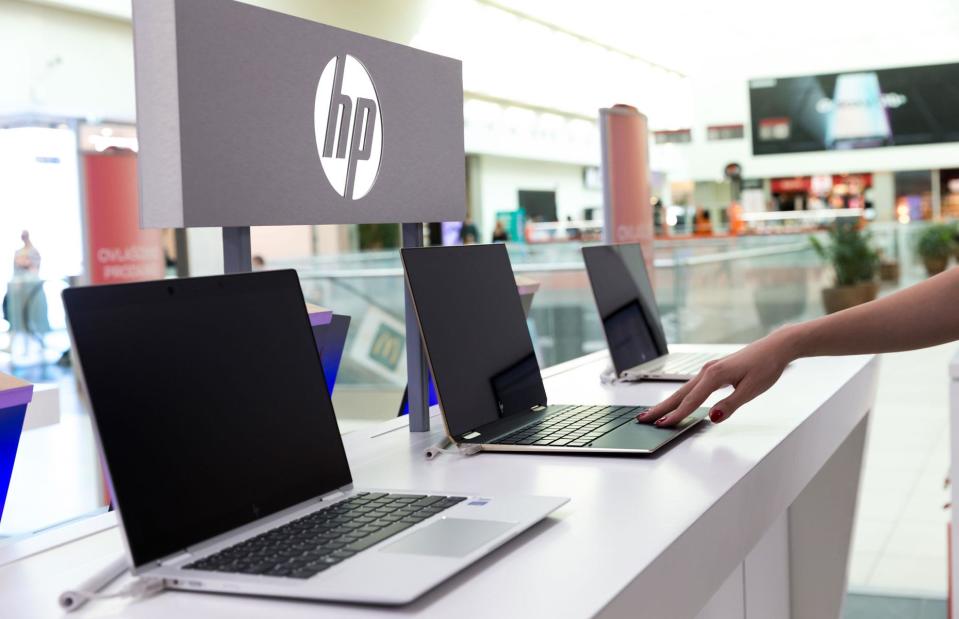
N.Z.Photography/Shutterstock
The same Nikkei Asian Review report from 2019 cited anonymous sources stating that Dell's competitor HP was also planning to relocate 30% of its notebook production away from China. The reasoning behind both moves was to avoid the punishing US tariffs on tech products produced in the People's Republic for the US market. In 2021, it was also reported that HP had sold its Chinese laser printer production operation to Taiwanese company Foxconn.
According to Reuters, HP has also started surveying suppliers to establish the feasibility of moving its production and assembly away from China.
Nike
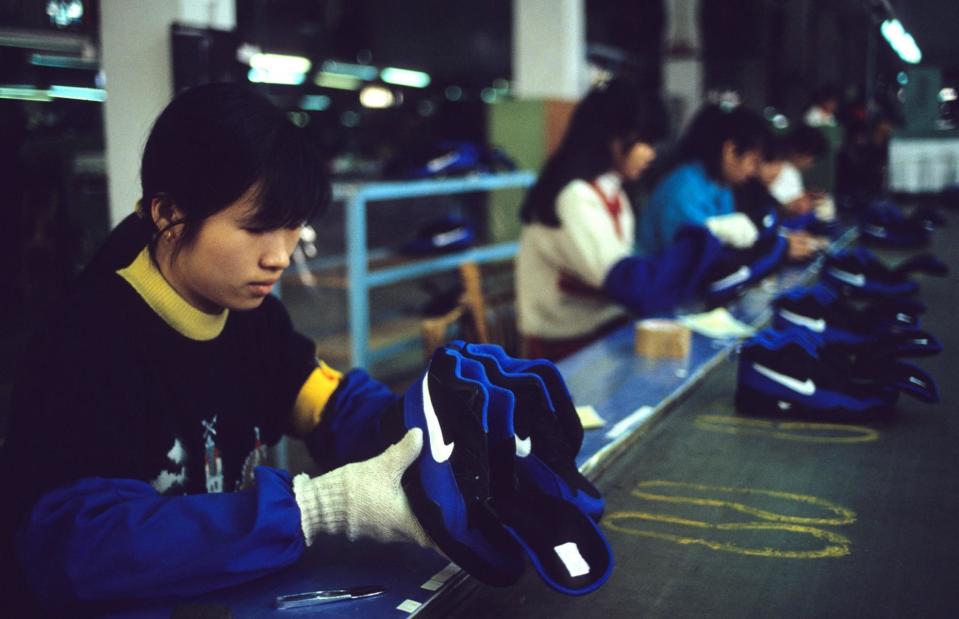
ANDREW HOLBROOKE/Corbis via Getty Images
Nike's suppliers have been relocating production facilities to southeast Asia and Africa for some time now, and the company reviewed its supply chains in Xinjiang too, following stories of the alleged mistreatment of Muslim Uyghurs in the region. Swathes of Chinese people then boycotted international brands such as Nike, who chose to speak out against what was happening in Xinjiang. Sales of Nike products in the country have fallen due to this and COVID lockdowns.
Hasbro

Kris Tripplaar/SIPA USA/PA
American firm Hasbro has been moving a significant proportion of its production out of China to factories in Vietnam and India for some time. The world's number-one publicly listed toymaker said it was reducing the volume of goods it produced in China for the American market to 50% by the end of 2020, down from just under two-thirds in 2019.
Intel
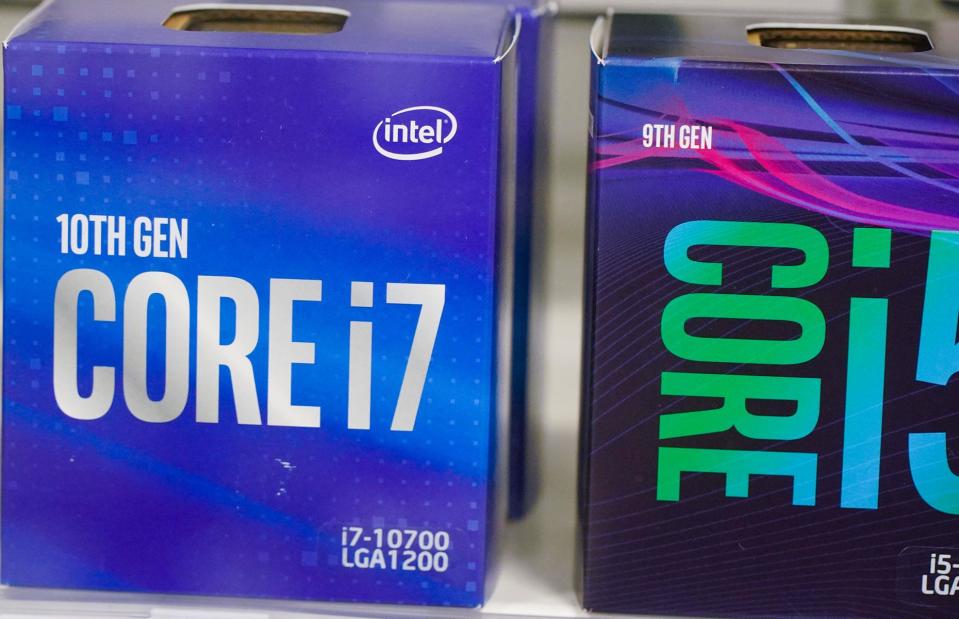
John Nacion/NurPhoto/PA
Intel remains confident in the Chinese economy and is strongly committed to operating in the country. However, the Silicon Valley-based semiconductor chipmaker has followed many US companies by shifting the manufacturing and assembly of some of its products to Vietnam.
Intel’s former CEO Bob Swan also wrote to then-President-Elect Joe Biden in November 2020, outlining the necessity of a “national manufacturing strategy” to “ensure American companies compete on a level playing field” in response to the likely scenario of China dominating the semiconductor chip production industry in the next decade.
The company’s current CEO Pat Gelsinger reinforced this message in March 2021, when he announced a $20 billion (£14.4bn) plan to build two new chip manufacturing facilities in Arizona. In September of that same year, Intel announced it would be investing up to $95 billion (£68.2bn) in the production of chips in Europe, as it sought to boost production capacity during the global semiconductor shortage.
Samsung
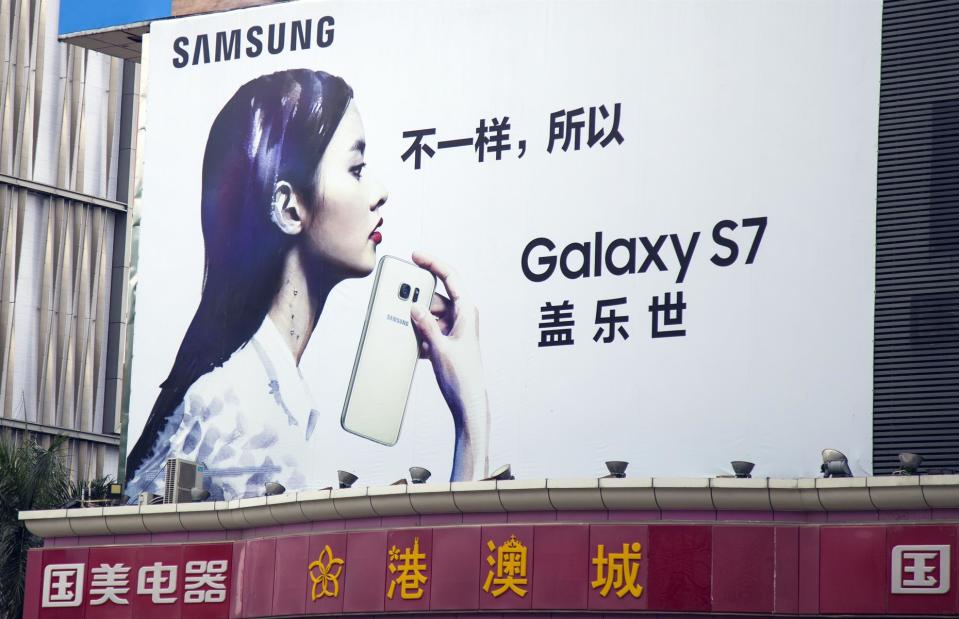
Asia Images/Shutterstock
Samsung Electronics is another tech business turning its back on China, and has announced it will invest $230 billion (£185.6bn) to build five chip factories across South Korea. The company shut its remaining smartphone factory in China in 2019, reportedly turning the city where it was based into a ghost town. Further closures were announced in 2020, with Samsung ceasing production at its last Chinese PC plant in August 2022, instead moving operations to Vietnam. The company shuttered its only TV factory in the People's Republic in November 2020.
Samsung is also focusing on chip manufacturing within the US. According to Kim Young-woo at SK Securities, the company has "been rethinking their strategies because of the US-China technology war, and they are now tilting further towards the US because of geopolitical risks". The decision is likely to have been motivated by the US CHIPS and Science Act, signed into law in August 2022, which grants billions of dollars to chip manufacturers in the US on the condition they don't expand chip operations in China for the next 10 years.
LG Electronics
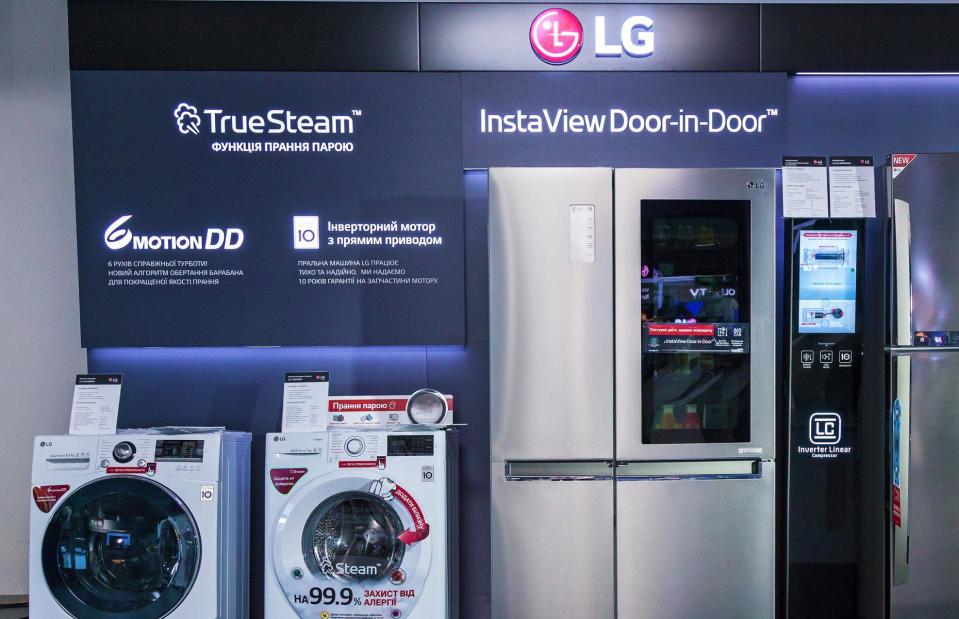
Photosite/Shutterstock
Fellow South Korean firm LG Electronics has followed in the footsteps of Samsung and relocated the manufacturing of some of its products from China. To avoid hefty US tariffs, the company shifted all production of refrigerators bound for the American market from China's Zhejiang Province to South Korea.
Puma
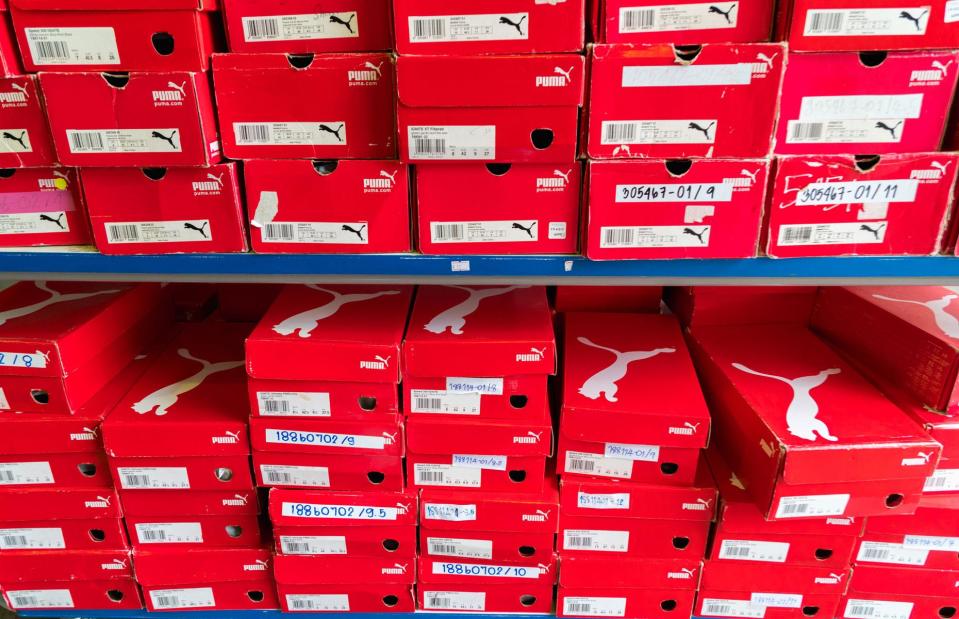
2p2play/Shutterstock
Unlike its arch-rival Adidas, which has halved its Chinese manufacturing since 2010, Puma is still feeling the effects of a Chinese consumer boycott, sparked by statements it made about the treatment of Uyghur Muslims in March 2021. The company, which used to make more than a quarter of its products in the People's Republic, is keen to diversify its manufacturing base and supply chains, and avoid US tariffs. It's now producing more of its running shoes, sportswear, and other products in Bangladesh, Cambodia, Indonesia, and Vietnam.
Airbnb

AlesiaKan/Shutterstock
Global accommodation giant Airbnb stopped all its Chinese listings when COVID-19 lockdowns hit the tourism market in the country hard. Reports say the company is maintaining an office in China to help Chinese tourists book elsewhere in the world, but it's given up on a domestic market it first entered in 2016.
Sharp
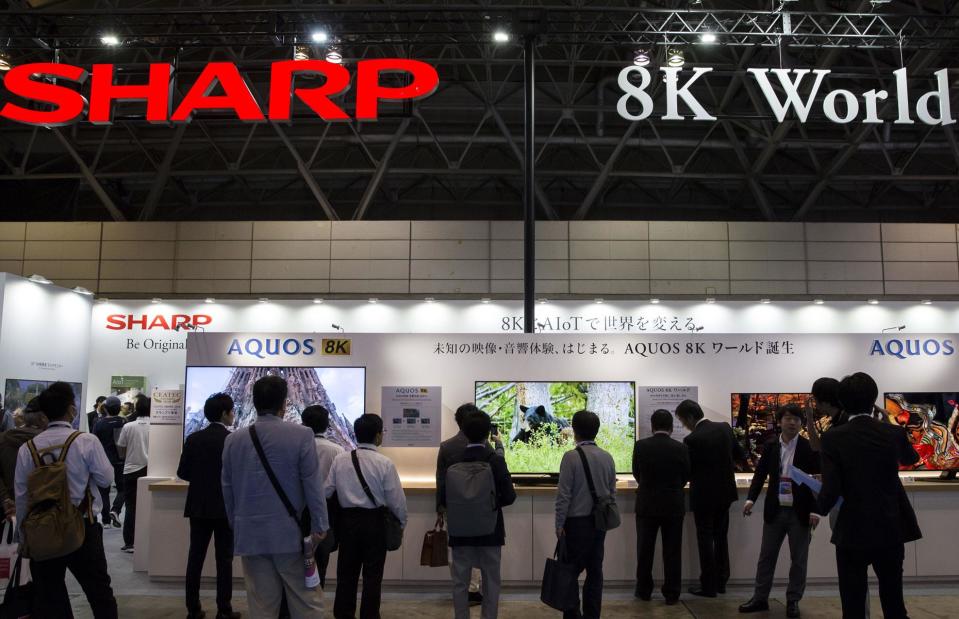
Tomohiro Ohsumi/Getty
To reduce the country's reliance on China, the Japanese government set aside 243.5 billion yen ($2.2bn/£1.7bn) in April 2020 to incentivise domestic companies to pivot production away from the People's Republic and into Japan and southeast Asia. Among the 87 firms that benefitted from state subsidies was world-renowned consumer electronics company Sharp, which is majority-owned by Taiwan's Foxconn.
Google/Alphabet
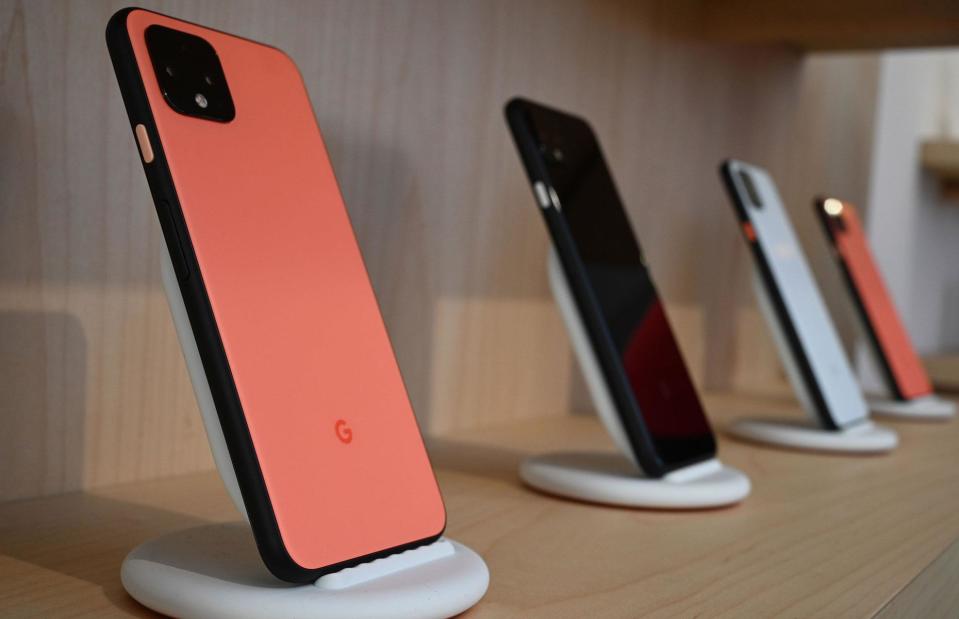
Robyn Beck/AFP/Getty
Google is more or less blocked in China, but the search engine's parent company Alphabet still produces hardware products in the country, although perhaps not for much longer. As supply chains have become disrupted, the tech behemoth has moved manufacturing of its flagship Pixel smartphone to Vietnam, and will reportedly produce various smart home products in Thailand rather than the People's Republic. Production of its Cloud motherboards and Nest products has already relocated to Taiwan and Malaysia.
Shifting production away from China has been a longer process than hoped, mainly due to outbreaks of COVID-19 in countries such as Vietnam. However, some of Google's latest Pixel phones are now being made in Vietnam, according to sources quoted in the New York Times in September 2022.
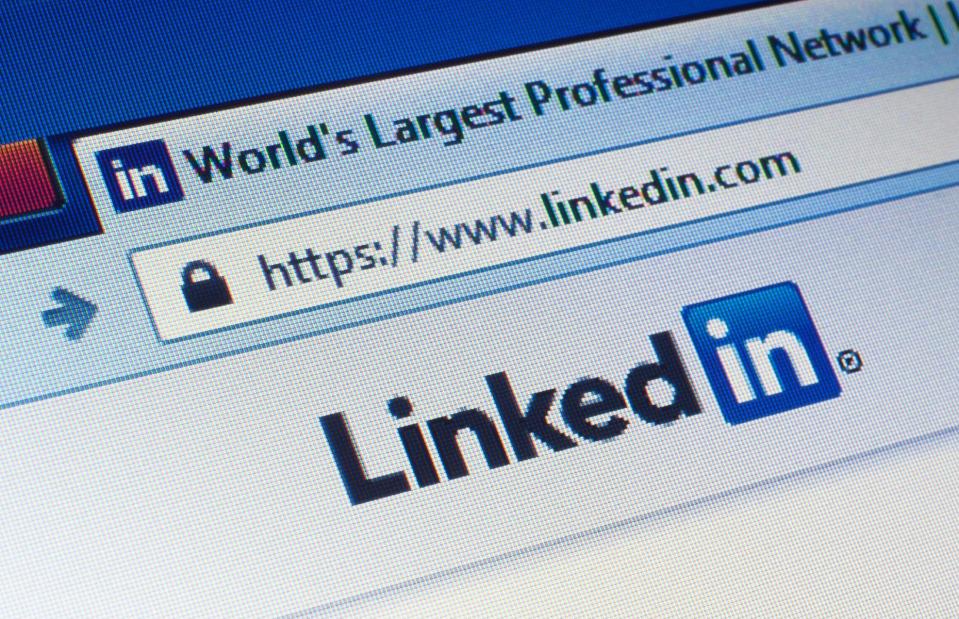
Evan Lorne/Shutterstock
Now owned by Microsoft, the careers networking service closed its Chinese site. LinkedIn senior vice-president Mohak Shroff wrote: "We're facing a significantly more challenging operating environment and greater compliance requirements in China". LinkedIn had faced criticism for blocking the profiles of some journalists. It launched a jobs-only version of the site, called InCareer, in December 2021.
GoPro

Volkova Vera/Shutterstock
Even before COVID-19 disrupted supply chains and the trade spat between the US and China turned even uglier, American action camera company GoPro had relocated much of its US-bound manufacturing away from China to Mexico. The move was announced back in December 2018.
Sony
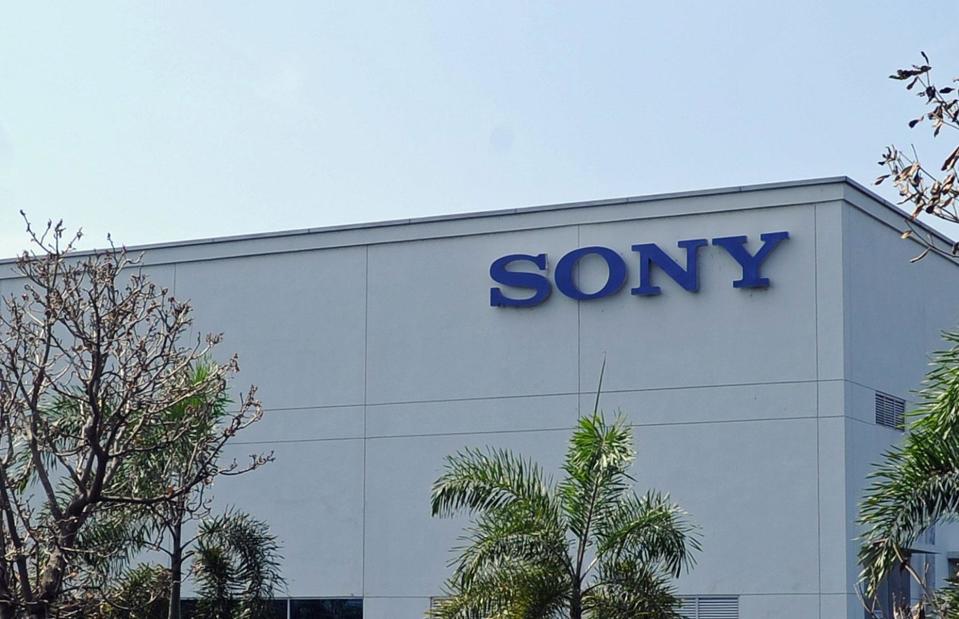
Pornchai Kittiwongsakul/AFP/Getty
Sony closed its smartphone plant in Beijing in 2019, moving production to a factory near Bangkok, Thailand. However, the Japanese tech company was at pains to stress that the move was prompted by disappointing sales and rising costs in China, rather than the US-China trade conflict. Sony also moved its regional executives from Hong Kong to Singapore in July 2020.
BlackRock
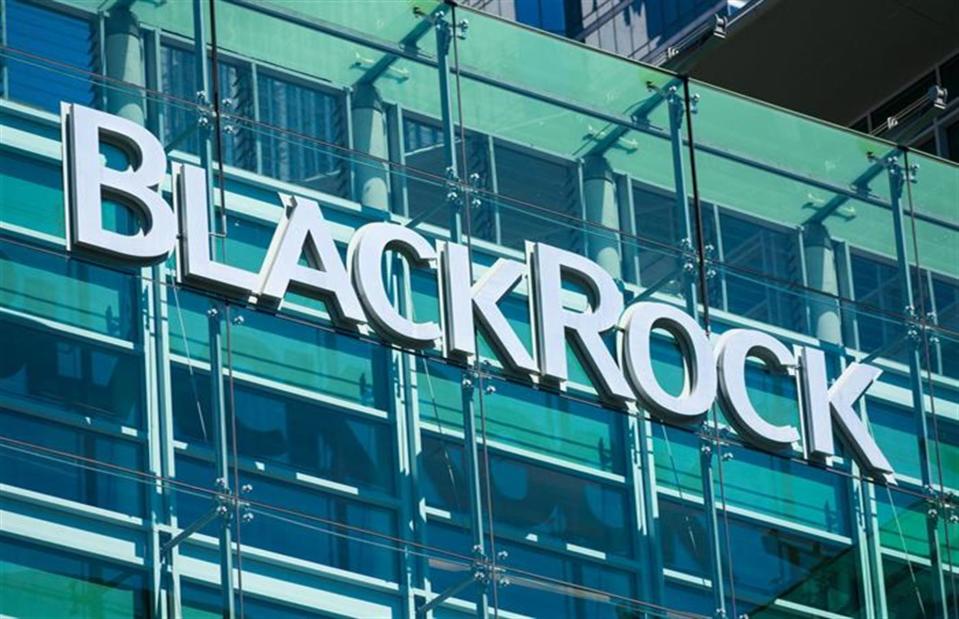
Michael Vi/Shutterstock
New York investment bank BlackRock had plans to become a major player in the Chinese market. In August 2020, the world's largest asset-management business garnered approval from the China Securities Regulatory Commission to launch a wholly-owned mutual fund arm in Shanghai. In May 2021, the bank also received a licence for a majority-owned wealth management venture, which it planned to own in partnership with China Construction Corp and Singapore state investor Temasek Holdings.
But in November 2022, the company announced it had "indefinitely" postponed the launch of its exchange-traded fund (ETF) in China. According to the Financial Times, BlackRock made the U-turn as a result of US-China tensions and the risk of a political backlash, and the fact that US treasury bonds delivered a higher return than Chinese bonds.
Nintendo
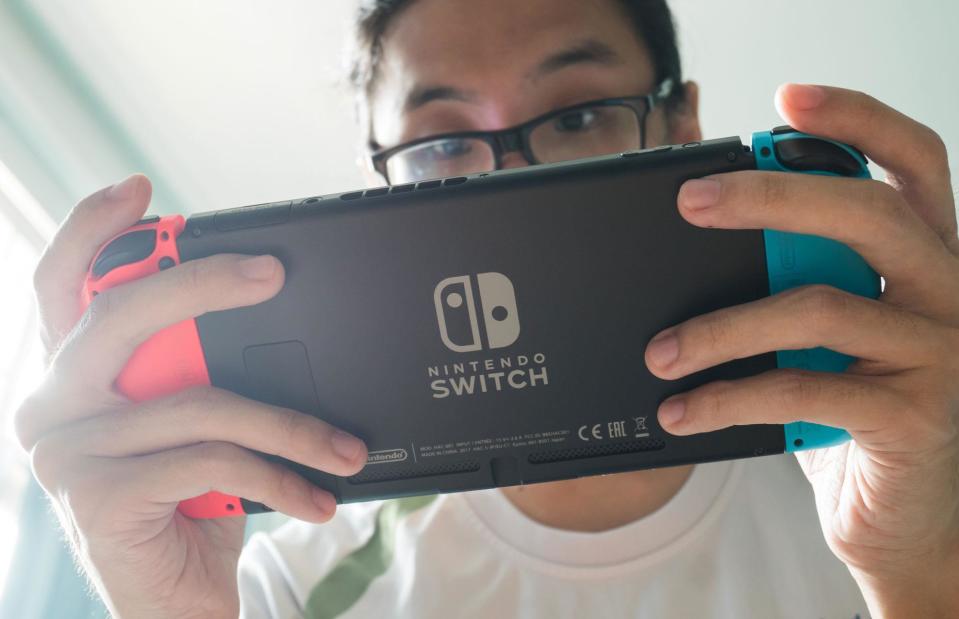
Wachiwit/Shutterstock
In 2019, Nintendo moved some production of its Switch console from China to Vietnam. Like Sony, however, the Japanese video games company said the move had nothing to do with the US-China trade war, and was instead about diversifying its manufacturing options.
Steve Madden
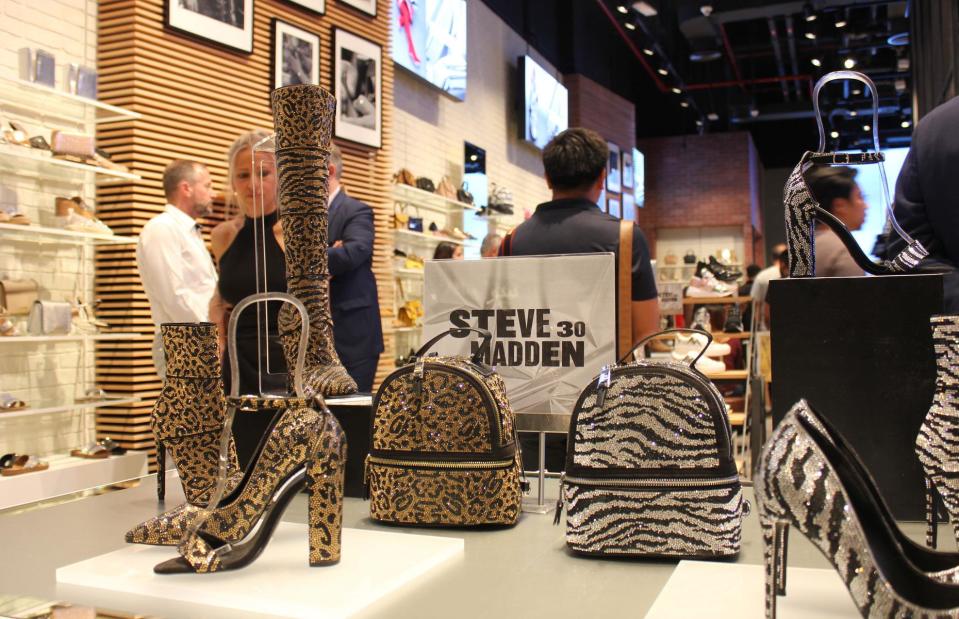
Arnold O. A. Pinto/Shutterstock
Steve Madden has previously announced that its shoes and handbags will no longer be produced in China. The New York-based fashion company was hit by tariffs imposed by the Trump administration and planned to gradually move production of its footwear and accessories to Cambodia, Brazil, Mexico, and Vietnam to keep costs for its US customers on an even keel. The process was suspended temporarily due to the COVID-19 pandemic but resumed in 2021.
Old Navy/Gap
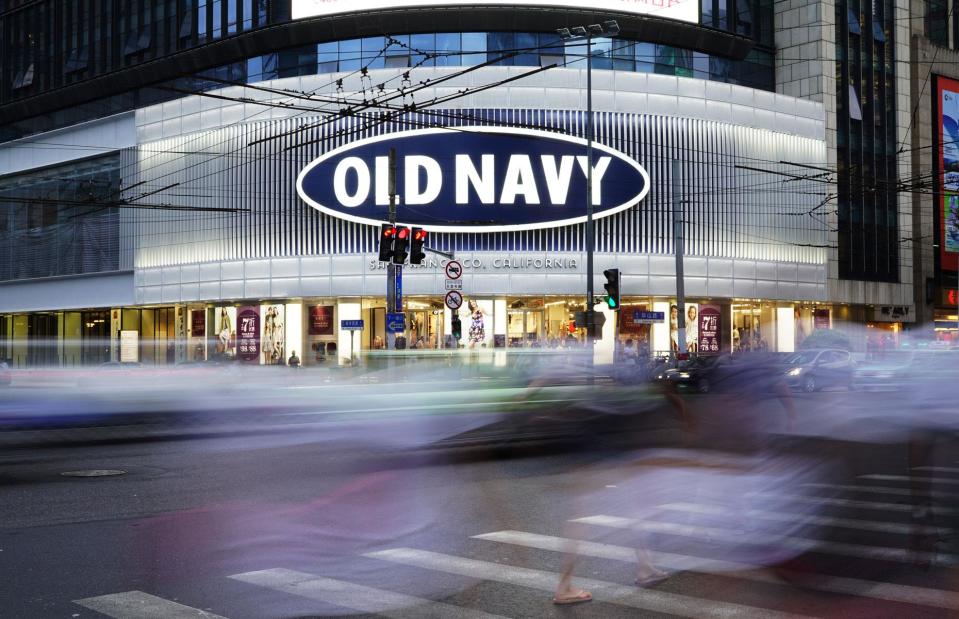
August_0802/Shutterstock
Companies are not only relocating their manufacturing operations away from China. Many foreign retailers have decided to bow out of the country too. They include Gap sub-brand Old Navy, which shuttered all of its 10 stores and concessions in China in March 2020.
Under Armour
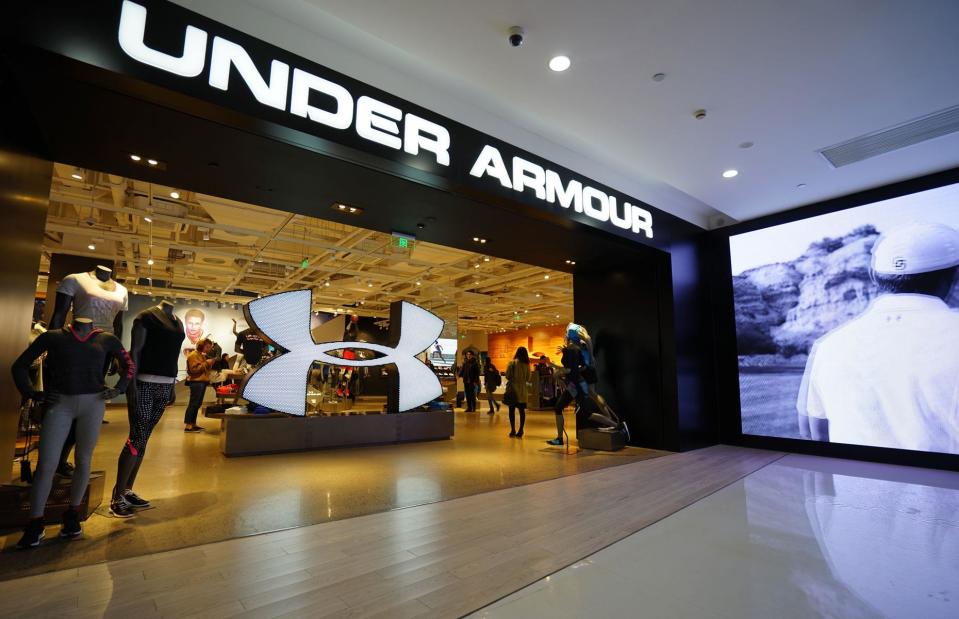
August_0802/Shutterstock
In light of the US-China trade War, American sportswear and casual apparel company Under Armour mapped out a plan to reduce its reliance on manufacturing in China in favour of countries such as Vietnam, Jordan, the Philippines, and Indonesia. The company had a plan to source just 7% of its products from China by the end of last year, down from 18% in 2018.
Superdry
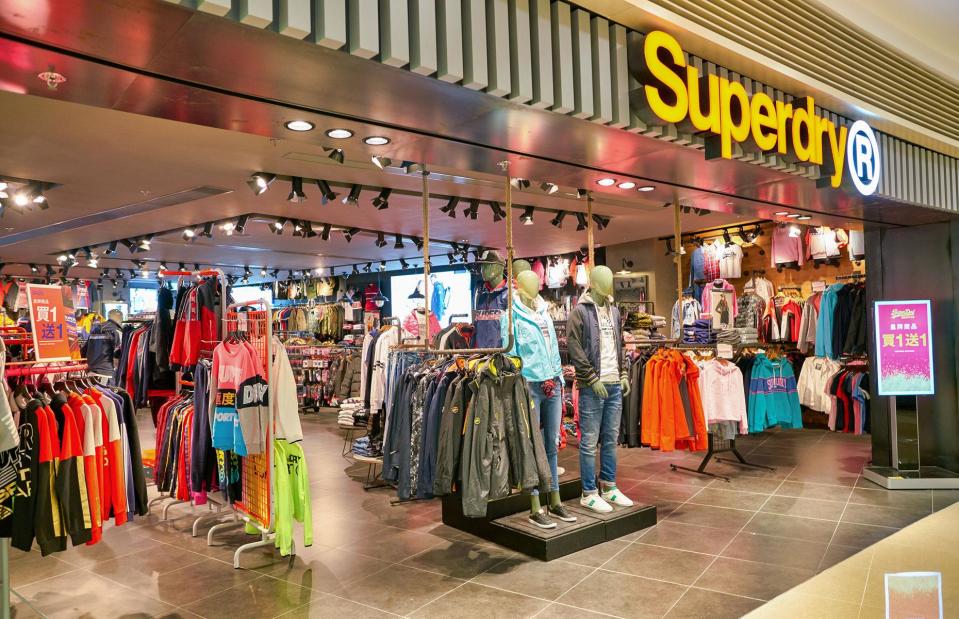
Sorbis/Shutterstock
British fashion retailer Superdry, known the world over for its coats, T-shirts and other clothing that fuses classic Americana with Japanese-inspired graphics, also exited the mainland Chinese market following a strategic review. Amid lacklustre sales, the firm decided to close 25 company-owned stores and 41 franchise locations. Like many companies, Superdry also increasingly imports clothing from Indian suppliers instead of China.
Space NK

David M. Benett/Dave Benett/Getty
Space NK has also departed China. Founded in London's Covent Garden in 1993, the luxury beauty retailer entered the Chinese market in 2018 but decided to exit the country in 2020, shutting its eight active locations.
The New York Times
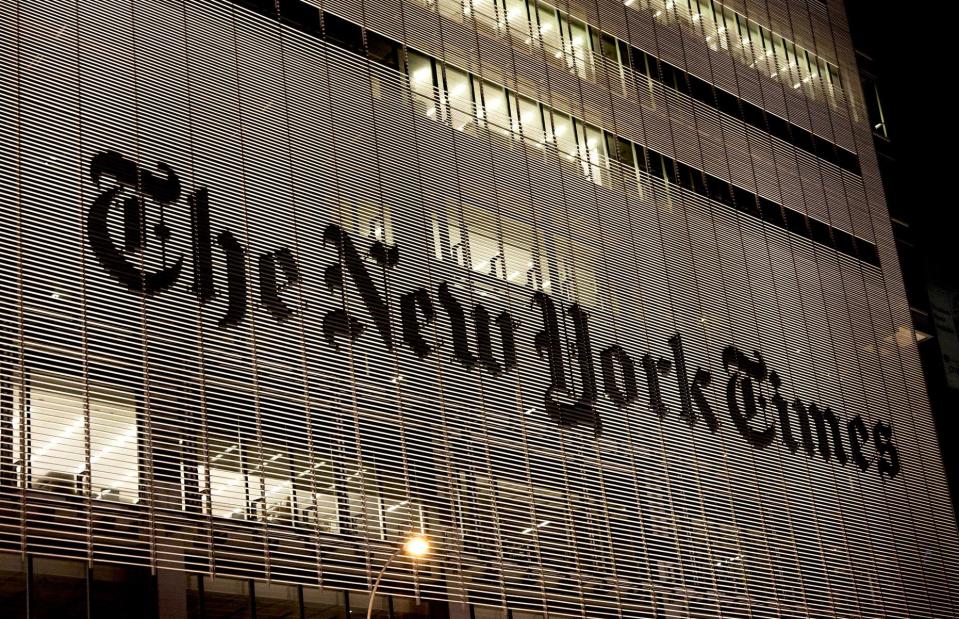
Osugi/Shutterstock
The New York Times decided to move part of its Hong Kong office to Seoul, South Korea in response to Beijing's controversial security law, which came into effect in June 2020. The law curtails freedom of speech in the Special Administrative Region. According to the US news outlet, the law "unsettled news organisations and created uncertainty about [Hong Kong's] prospects as a hub for journalism".
Naver

Peter Austin/Shutterstock
The news outlet's exit came hot on the heels of Naver's announced withdrawal from Hong Kong. The South Korean web services firm, which owns a majority of Line, Japan's answer to WhatsApp, was the first major foreign company to leave the Special Administrative Region due to privacy concerns. The business planned to relocate its data back-up centre to Singapore.
Dentons
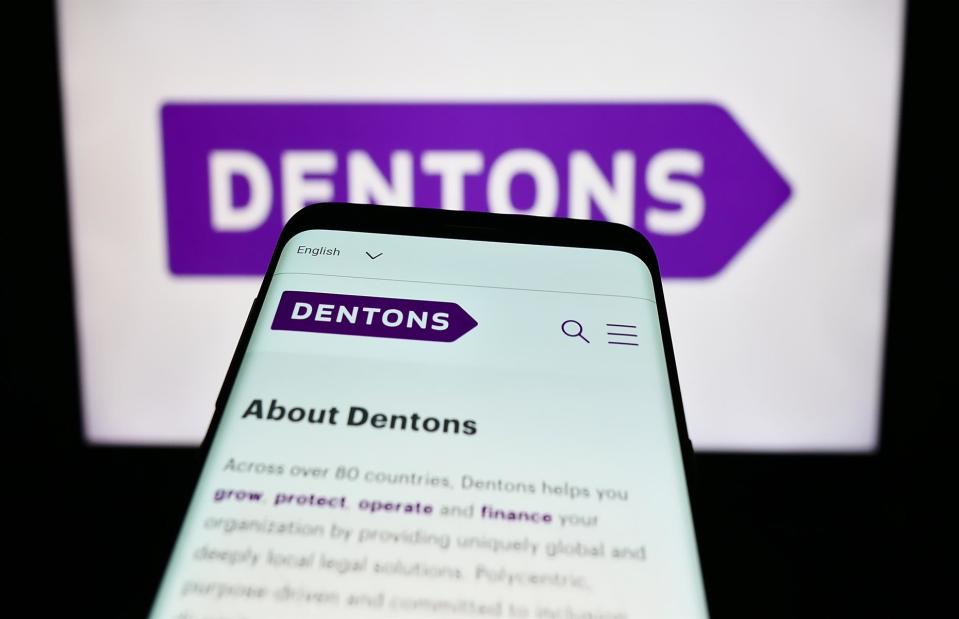
T. Schneider/Shutterstock
Dentons, the world's biggest law firm by number of employees, has chosen to separate from its Chinese arm. Since August last year, Dentons' branch in China has operated as a standalone business using its current local name Dacheng, although it will continue to partner with Dentons as the law company's "preferred firm".
In a statement, Dentons said it was siphoning off its Chinese business because of "new mandates and requirements relating to data privacy, cybersecurity, capital control, and governance".
Quanta Computer
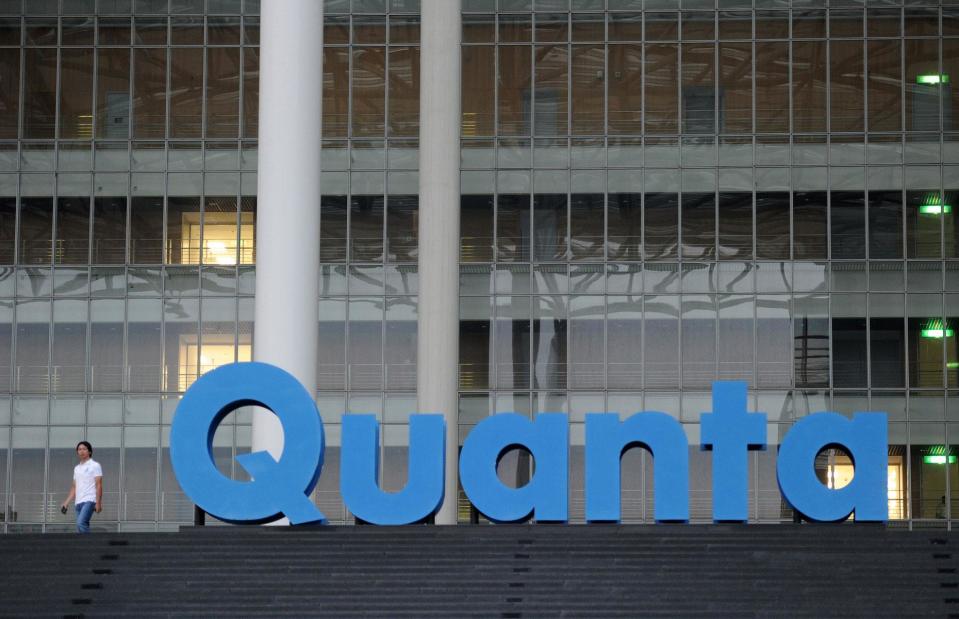
Sam Yeh/AFP/Getty
Taiwan's Quanta Computer is the world's third-biggest electronics manufacturing services company and a major supplier of data centre servers to US tech firms such as Google and Facebook. The company opted to pivot production away from China, moving some of its manufacturing from the country to a new $500 million (£395m) plant in the Taiwanese municipality of Taoyuan in 2019.
Now read about the companies richer than entire countries

 Yahoo Finance
Yahoo Finance 